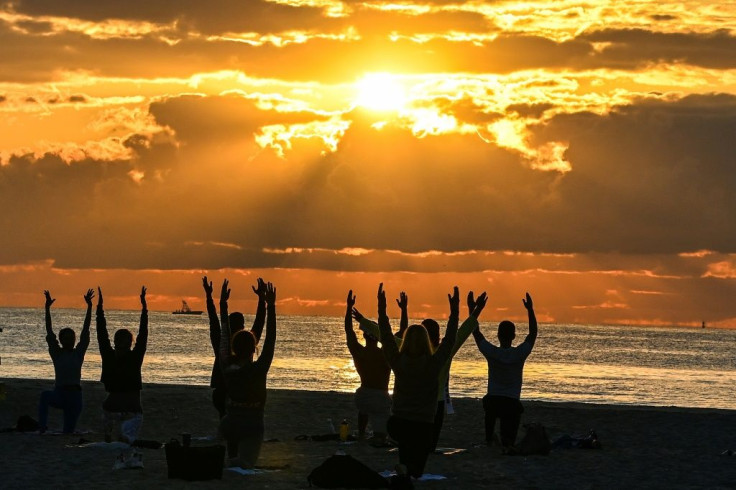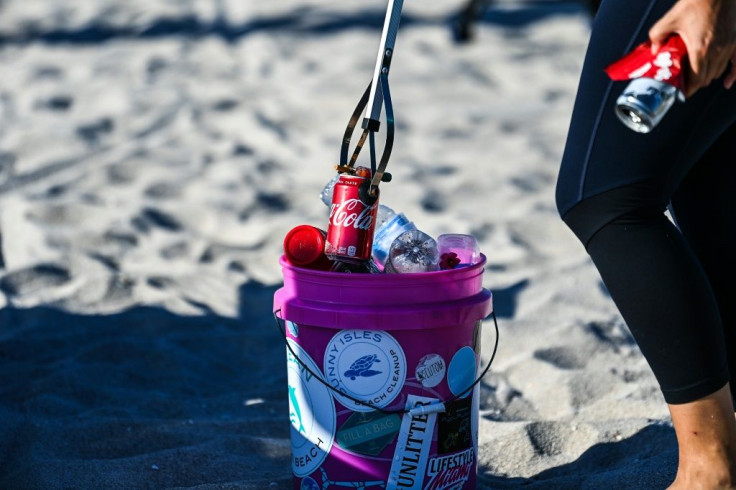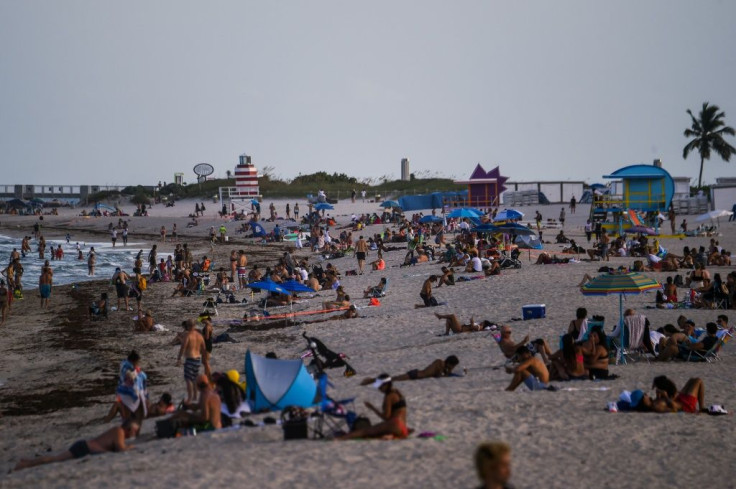Miami Beach Residents Reel From Hard-partying Crowds
Hordes of drunken revelers ignoring the pandemic have forced parts of Miami Beach into a state of emergency but, just blocks away, locals organize trash collection and do yoga in the morning calm.
About a dozen early-risers, most of them residents, gather on the beach in front of a lifeguard hut for a yoga class that begins as the sun rises over Florida.
"It has been a hard time with the spring break. As residents, we are cautious," said instructor Radha Silva, 49.
"It's always been busy, but I guess this year because of the pandemic... unfortunately all those people, they're coming here and are unconscious about preserving the place.

"It has never like this year. I don't remember seeing spring break like this."
Miami Beach is an annual partying hotspot over the spring break holiday as thousands of people -- many of them students -- travel from across the United States to embrace the warm weather, golden sand and late-night bars.
But this year, the destination has been overwhelmed by visitors unleashing built-up frustration at Covid-19 shutdowns and restrictions.
Police have been forced to break up crowds of tourists dancing on car roofs and passing bottles from hand to hand as they celebrate -- prematurely -- the end of the pandemic.

Fights and clashes with police have erupted, along with some gun shots fired into the air.
"People gonna live. Corona is over, winter is over, get the vaccine, get back to business," said Joseph, a young visitor from faraway New Jersey.
"People are just out here enjoying the beach and it's a good vibe, but they want to shut it down at 8:00 pm."
Since February, police have confiscated 80 weapons and made more than 1,000 arrests, about 400 of them for serious crimes.

On weekends, the authorities have now imposed a curfew on the most touristy streets, and at night the bridges that connect the island with Miami city are closed.
But just blocks away from the party zone, the rest of the island is a peaceful, mixed neighborhood.
Many residents work at restaurants and hotels, and get around by bicycle.
They shop in neighborhood markets that sell both Argentine empanadas and Serbian ajvar, and which have Cuban "windows" where strained coffee is served and shop assistants speak Italian, English and Spanish.
Many locals express frustration at the recent chaos, including Sophie Ringel, a 36-year-old German accountant and environmentalist who goes along the beach collecting litter in the late afternoons.
"I don't like picking up other people's trash," Ringel said. "But leaving it in nature is even worse.
"Spring breakers are destroying our city on many levels, it's a complete disaster.
"It does affect our everyday life as residents, with the curfew, with the restrictions. And it makes me feel unsafe, even if I'm out of the area where it is most concentrated. I still feel unsafe in my own city."
Her group, Clean Miami Beach, has collected 22,000 pounds (10,000 kg) of trash from the beaches since she founded it in 2019 -- on top of the regular beach cleaning by the city authorities.
For Miami Beach's community, this year's spring break has highlighted that many residents rely on visitors for their jobs -- but that it comes at a cost.
Tania Dean, a British barista who has been in Miami Beach for 21 years, admits she is afraid to walk her dog at night, but the police intervention "is like emptying the ocean with a spoon."
"I love the tourists. They pay my bills," she said. "It's such an easy thing to do to villainize the tourists. They're not the problem. The problem is the city management."
© Copyright AFP 2024. All rights reserved.





















